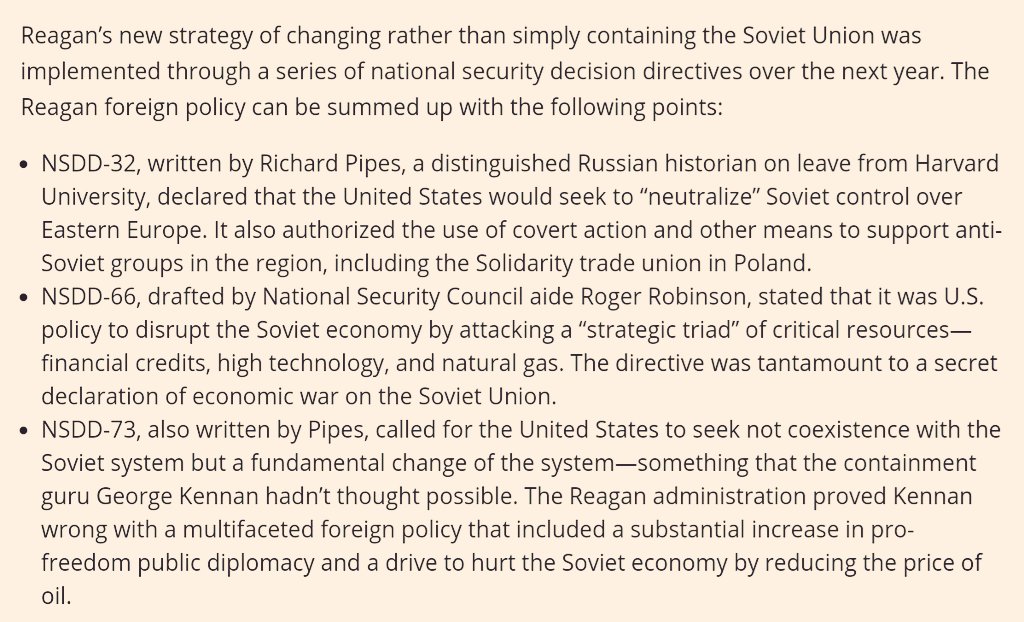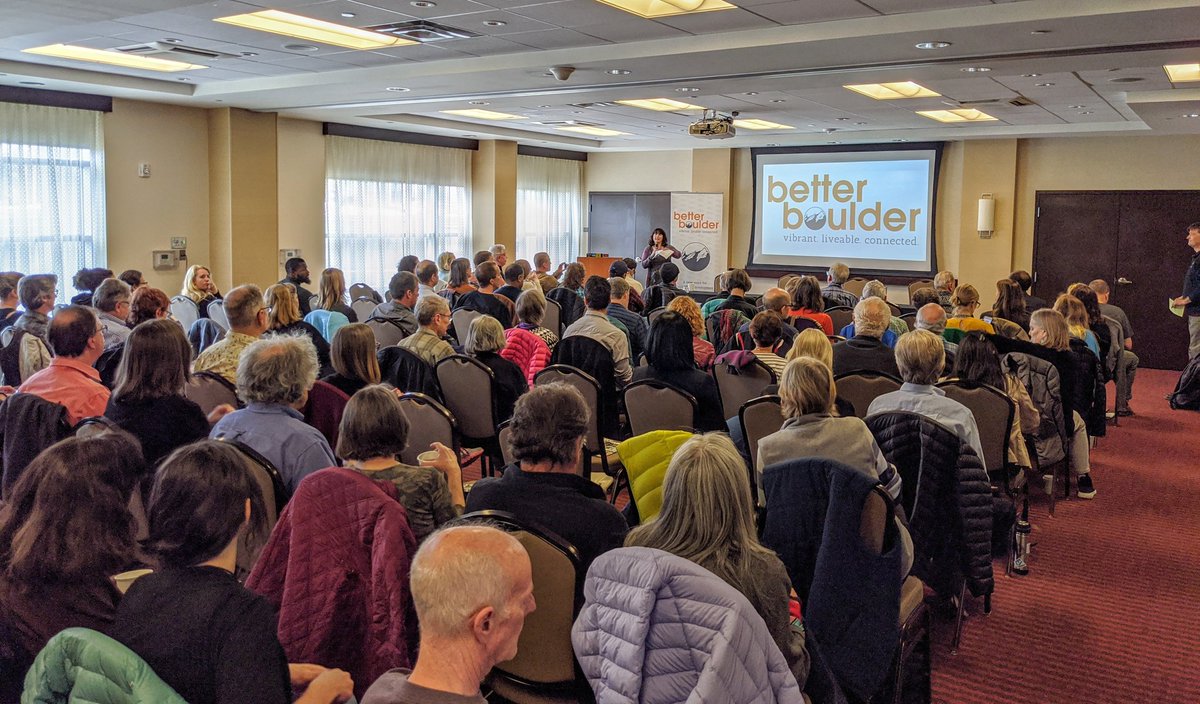
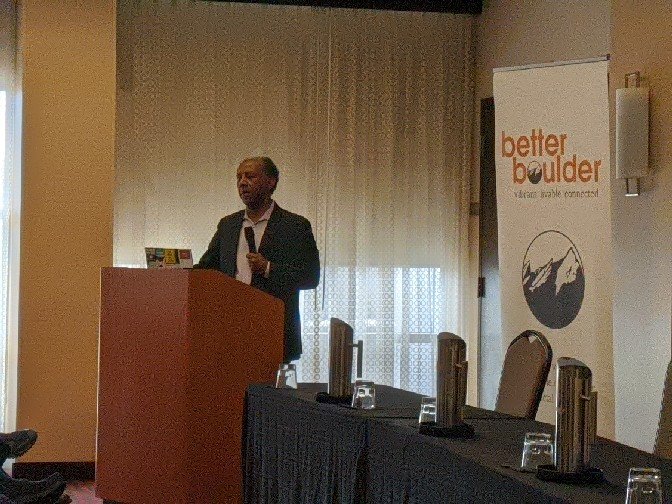
- Housing Affordability
- Race and Social Equity
- Livability
- Environmental Sustainability
- Vulnerability
- Amenities
- Development capacity and rent
- distribute the benefits of growth equitably
- prioritize marginalized populations
- use a race and social equity lens
- address displacement
- increase opportunities for low-income households
Sam talks about the impact of improving transit
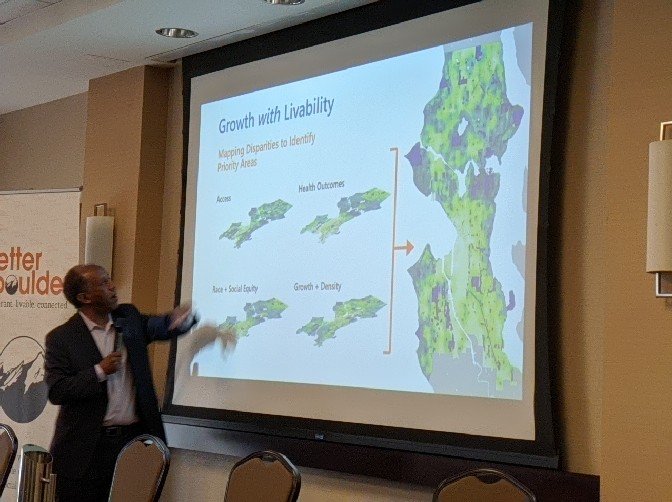
"different scales but the same issues. the wishes and goals are the same"
"Some growth in the center. A lot of the growth is in the edge cities."
Sam relates a story of a woman who has seen the displacement in real time. important of maintaining a diversity of people in the core city
"It's important to get projects implemented and in the ground. There's an urgency in climate, affordability, and homelessness. we can't afford to do a 5-year community plan because change is so fast"
Sam says: "That's a loaded question. It's a national issue, not just a Boulder issue. The affordability issue is deep, and can't just be addressed with density"
"Single family homes are the most expensive of any city, but they also have the most amenities as well. so there's an equity issue"
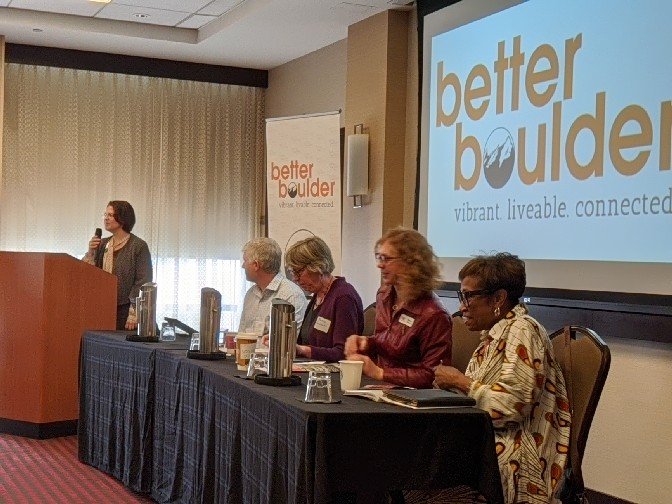
1. Eliminate single family zoning in Boulder, make it easier to build ADU's
"move from LOS (level of service) which focuses on traffic flow to VMT (vehicle miles traveled)" to reduce the effects of driving
A: "Programs in Singapore/Stockholm essentially draw a line around Boulder. It would be possible given the open space around Boulder. but it's hard and a heavy lift"
A: "E-bikes can help. but we also need a connected network of bike lanes. and places where you can take a kid or an aging parent and have them be comfortable"
A: "my goal is to kill NextDoor. there is no dearth of thoughts around duplexes, triplexes"
A: "There's a project on Colfax in Denver converting a hotel for bunks for the homeless. another problem is transition programs"
A: "cities looking at a city-mandated transportation demand management that could include tele-working"
A: "I might be optimistic, but climate change. Boulder declared a climate emergency, but there's a delta between what's being done"












